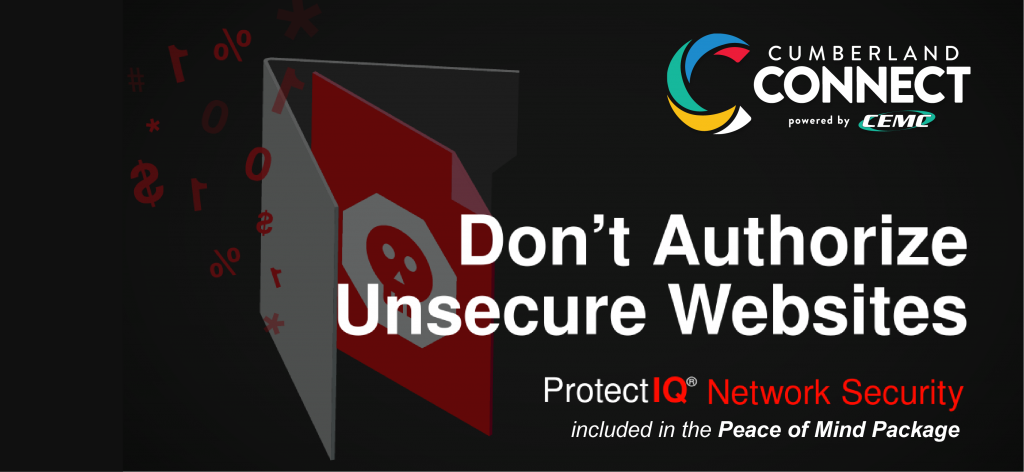Don’t Authorize Unsecure Websites
What are cookies — and are they safe?
Anyone who regularly browses the Internet has probably seen some sort of pop-up or other forms of alert about the use of cookies, which are small bits of text that are downloaded and stored on your computer by your browser. So, is it safe to enable cookies?
Simply put, cookies are an important tool on the Internet and have the potential to give businesses a great deal of insight into your online activity. Far beyond the privacy-related issues, there are many ways that unprotected cookies can be manipulated and expose users to severe security incidents.
Any cookie related to authentication should always be transmitted securely, but that is not always the case. One example is cookies without a security flag. When a cookie is set with the Secure flag, it instructs the browser that the cookie can only be accessed over secure channels. If the secure flag is not set, this could allow an attacker eavesdropping on network traffic to easily capture the cookie and use it to gain illegitimate access.
One of the most basic ways you can prevent cookie theft and session hijacking is by checking URLs. More sure websites are using HTTPS to ensure that all your session traffic is encrypted with SSL/TLS. Most websites these days use HTTPS encryption, but it’s best always to check by looking at the beginning of the URL in your browser. This is especially true when entering personal data.
Normally, hackers love to steal passwords, but stealing your cookies may be just as good. By installing your cookies with hashed passwords into their web browser, the criminal can immediately access your account with no login required. Your cookies can then be used to easily compromise social media, email, and many other services.
A simple but effective way to help stop hackers from stealing your personal information is to simply clear cookies on a regular basis. You can do so by finding the “Clear Cookies” option in your browser settings. Experts recommend doing this every 7 to 14 days. They also advise never storing credit card information on a site unless it is trusted. Deleting cookies does have one drawback however – you will have to re-enter passwords and personal information next time you logon to a website. This may be inconvenient, but it is also much safer in the long run by helping to keep you safe from cookie theft. A simple workaround would be to use a password management software, which does not rely on cookies from the website to store your login credentials.
Cumberland Connect subscribers can add a secret weapon to their cybersecurity arsenal: ProtectIQ Network Security. With ProtectIQ™, you can have an extra layer of network-level security that helps protect all devices connected to your network. ProtectIQ is a network-level security application, included in the Peace of Mind Package, that works quietly in the background and proactively helps keep malicious websites, viruses, and intrusion away from your home 24/7/365. Learn more about ProtectIQ and the other great benefits of enrolling in the Peace of Mind Package by clicking here.
We want you to have an awesome experience online — and that means keeping your personal information safe and protected! We hope that spreading awareness and sharing these safety tips helps you stay safe online — and be sure to check out our blog to read more about common online scams to watch out for.
*ProtectIQ is not a replacement for traditional antivirus software, but rather, works together with your antivirus software by ensuring that Internet-connected devices like video cameras, Smart TVs, home automation systems, video doorbells, or any other “smart” devices in your home are monitored for web threats and intrusions. While ProtectIQ adds an extra layer of security to your Wi-Fi network, ProtectIQ is not a substitute for antivirus software, and our team recommends keeping anti-virus software as an add-on to ProtectIQ as it can help clean up any systems that are infected.
